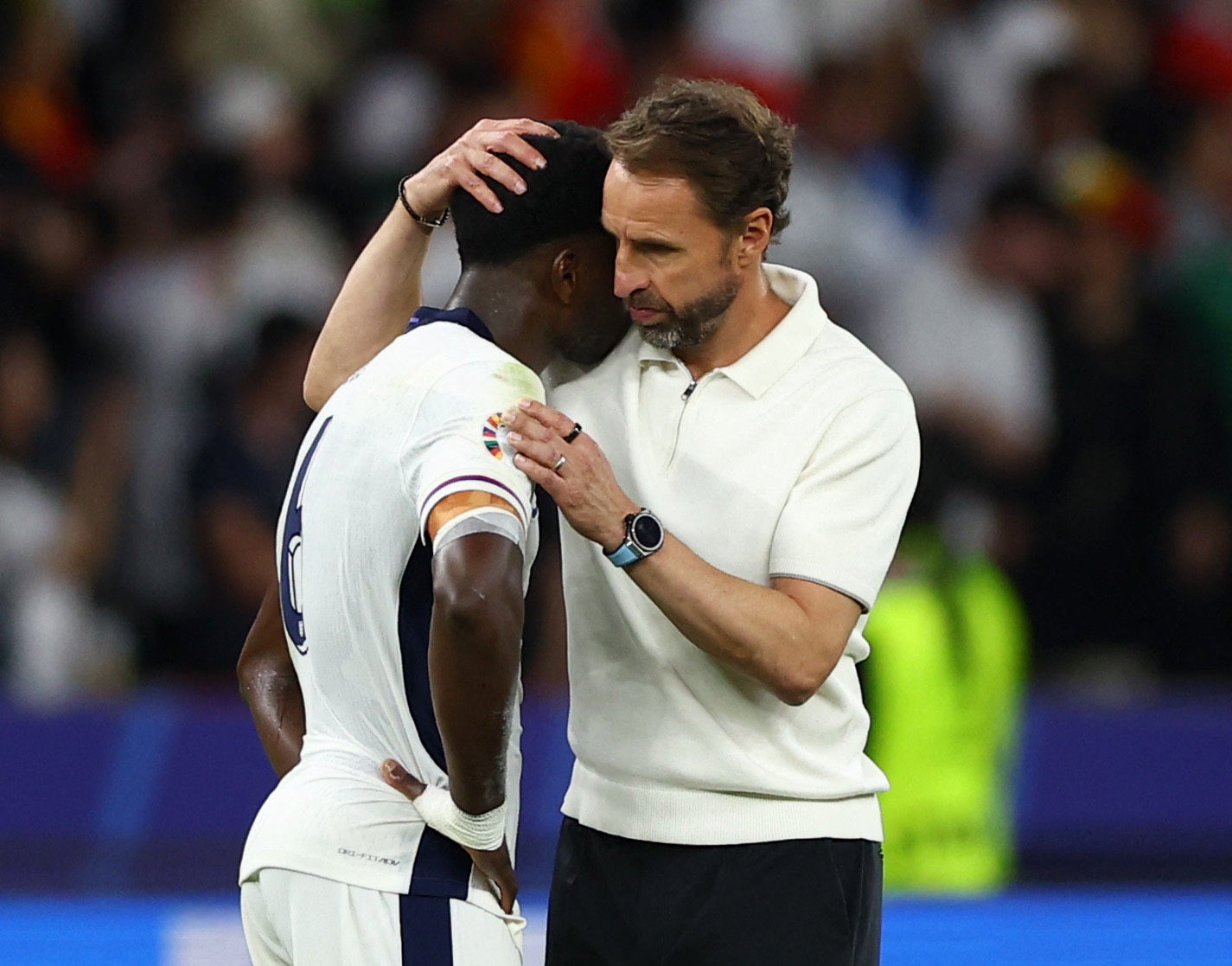Why are England so bad at winning?
Another final, another devastating defeat, and the years of hurt continue. Perhaps we’re simply destined to be losers, writes Gemma Abbott


Your support helps us to tell the story
From reproductive rights to climate change to Big Tech, The Independent is on the ground when the story is developing. Whether it's investigating the financials of Elon Musk's pro-Trump PAC or producing our latest documentary, 'The A Word', which shines a light on the American women fighting for reproductive rights, we know how important it is to parse out the facts from the messaging.
At such a critical moment in US history, we need reporters on the ground. Your donation allows us to keep sending journalists to speak to both sides of the story.
The Independent is trusted by Americans across the entire political spectrum. And unlike many other quality news outlets, we choose not to lock Americans out of our reporting and analysis with paywalls. We believe quality journalism should be available to everyone, paid for by those who can afford it.
Your support makes all the difference.One more night of collective heartache watching our men’s national football team come up short in a major international tournament. Why do we do it to ourselves? Every tournament, the country whips itself up into a frenzy of misplaced hope and expectancy, and every single time we’re spun around and unceremoniously spat out by our opponent.
Sunday night was the second time the men’s England team have reached a major final since the World Cup in 1966. The last – against Italy at the Euros four years ago – was eerily similar, a spirited performance from a team of superstars but ultimately not enough to clinch the win.
So here we are again: another final, another defeat, another day of wallowing in the aftermath of our national team’s failure. Another “golden generation” fails to pick up any silverware, and England’s reputation as the beautiful game’s great underachievers continues.
But let’s not feel too sorry for ourselves. If there’s one thing our nation is really, really good at, it’s losing. And I’m beginning to think it suits us.
Look no further than arguably our most famous winter Olympian, Eddie “the Eagle” Edwards. Whether, like me, you remember watching it live on television as Eddie took off from the ski jump and soared through the air at the 1988 Calgary Winter Olympics, or perhaps you’ve watched the excellent film depicting his heartwarming against-all-odds story, you’ll know he was absolutely nowhere near winning a medal.
But in coming last place in both his events, the bespectacled Brit who just “gave it a go” subsequently became one of our country’s most loved Olympic and sporting icons.
You see, we don’t just love an underdog; we Brits absolutely love a loser.
Eddie is just a small part of a long modern history of popular figures we celebrate not for their unlikely victories, but for their dogged persistence in the face of repeated failure.
Take Tim Henman. He dominated British tennis in his time, winning several ATP titles and rising to fourth place in the global rankings. But Tim continues to be remembered more for what he didn’t achieve than what he did. Despite fervent home support on Centre Court, he never managed to win the Wimbledon title. In fact, he never managed to win a Grand Slam.
In the early 2000s, watching Henman lose at Wimbledon almost became a national rite of passage – he reached the quarter-finals eight times, the semi-finals four times, but never made it to a final. In doing so, Tim Henman added himself to the illustrious line-up of great British losers.
Loving a loser means our patriotism when it comes to sport is complicated. I mean, show me another nation whose most popular football song focuses on the decades of pain and hurt we’ve suffered from consistently losing.
We’re a country that adores its sport, but for a country that values it so highly, we are incredibly bad at winning.
After watching yet another heartbreaking defeat last night, I couldn’t help but feel that at some point we might have to do something about it all. How many more “years of hurt” can we bear?
Is now the time to finally shake off the defeatist tropes? Whether Gareth Southgate stays or goes, maybe if we all stop focusing on how disastrously unsuccessful we’ve been in the past and start manifesting what is it we want to be, perhaps we’ll start to see a bit less traumatic disappointment on the football pitch and a few more truly magical moments.
Join our commenting forum
Join thought-provoking conversations, follow other Independent readers and see their replies
Comments